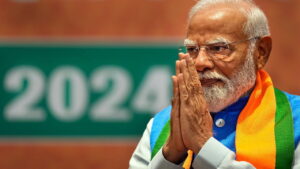
Your browser does not support the <audio> element.
WHEN A GAGGLE of Generation-Z employees from Seoul, Shanghai, Singapore and Tokyo gets together in one place, the ensuing conversation will usually be conducted in decent English. The participants are all equally fluent in another common language—that of corporate despair.
The inflexible hierarchies, long hours and culture of presenteeism that pervade Asia Inc have left many young workers deeply dissatisfied with their lot in life. In an annual global survey of employee wellbeing by Gallup, an American pollster, just 18% of under-35s in East Asia say they are engaged at work, below the already tepid 23% global average. Japan and Hong Kong skirt the bottom of the global rankings for engagement across all age groups.
Some have had enough. Thousands of young South Korean doctors downed stethoscopes in February in protest against the government’s plan to increase the number of medical students. On June 7th workers at Samsung Electronics, the country’s biggest listed company, went on strike for the first time. Union officials suggested that younger workers led the charge. Research by Shin Min-ju of Pukyong National University and Jung Heung-jun of Seoul National University of Science and Technology suggests that “Generation MZ”—which mixes Millennials (born between the early 1980s and late 1990s) and Gen Z in a country that does not have enough of either—are keener to join a trade union than their elders and more optimistic about how labour activism can improve working conditions.
Japanese workers are more placid and Chinese ones risk prison for striking. So instead some of them are fleeing from their countries altogether. Emigration is now a topic of discreet conversation among young workers in China, whose economy is faltering. Run, a Chinese word meaning profitable, has risen to prominence owing to its homophonic similarity to the English verb meaning something rather different. A record number of young Japanese workers are taking up working-holiday visas in Australia. Picking cucumbers while dodging venomous Aussie wildlife is seen as preferable to joining the rat race in Tokyo. Some youngsters marvel at California’s $20 hourly minimum pay for fast-food workers, three times what a Japanese burger-flipper earns.
Yet the most common response to the perceived misery of East Asian corporate life remains industrial inaction. In Japan and South Korea, young workers have engaged in a low-stakes, low-impact form of rebellion for more than a decade. Millennials are often referred to as the satori (“enlightened”) generation in Japan. In South Korea, they are the sampo generation, which means “giving up three”—dating, marriage and children—in order to serve the economy. Both convey a dejected attitude to work and life opportunities.
They were subsequently joined by their Chinese peers, who started talking about “lying flat”, or opting out of the pressures of modern life, whether in business or their personal lives, in 2021, a year before their Western peers discovered “quiet quitting”. The Chinese are also taking it further. In recent months the country’s social media have been replete with displays of “disgusting work outfits”, in which young workers show off their lowest-effort office garb, arriving at their desks in slippers and pyjamas. The only way to win the game, many appear to be concluding, is to refuse to play.
Asia’s corporate and political leaders are at last taking note. Last month the head of public relations at Baidu, a Chinese tech giant, had to apologise for ordering her employees to be contactable 24 hours a day and telling them, “I’m not your mother.” South Korea’s president, Yoon Suk-yeol, was forced to abandon a plan to raise the maximum work week from 52 hours to 69. The prime ministers of Japan and Singapore, Kishida Fumio and Lawrence Wong, have both promised their grumpy young citizens cuddlier forms of capitalism.
There are signs of relaxation. On a recent trip to Tokyo this guest Bartleby saw far fewer suits in several corporate headquarters than a business traveller might once have expected. There was scarcely a tie in sight. But for every two baby steps forward there is a senior step back. One American investor says he recently arrived in a short-sleeved shirt to speak to a panel of Japanese executives, only to find himself awkwardly facing the traditional wall of dark suits. Attitudes take a while to change—especially among the not-so-young.■
To stay on top of the biggest stories in business and technology, sign up to the Bottom Line, our weekly subscriber-only newsletter.















